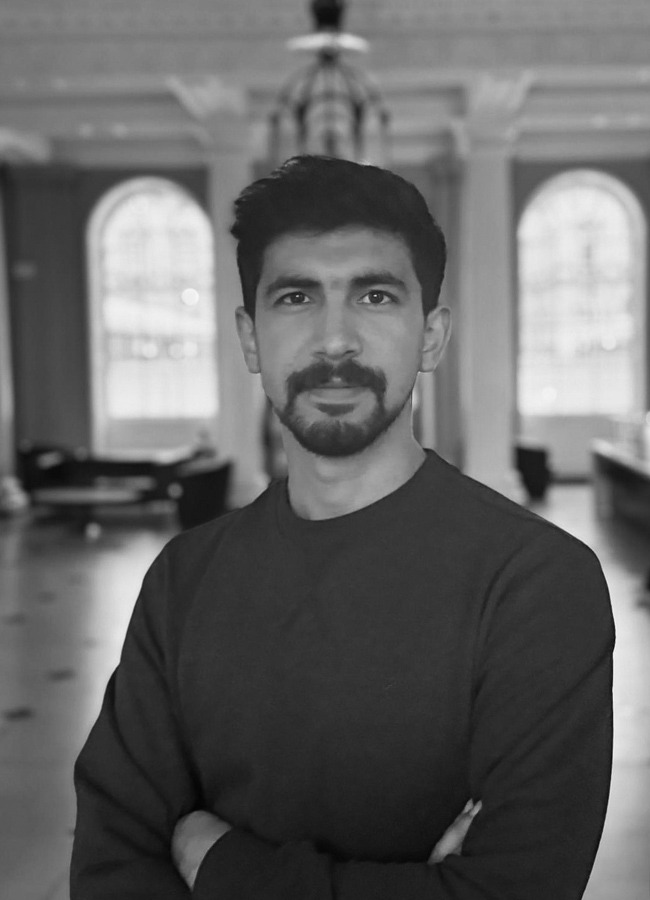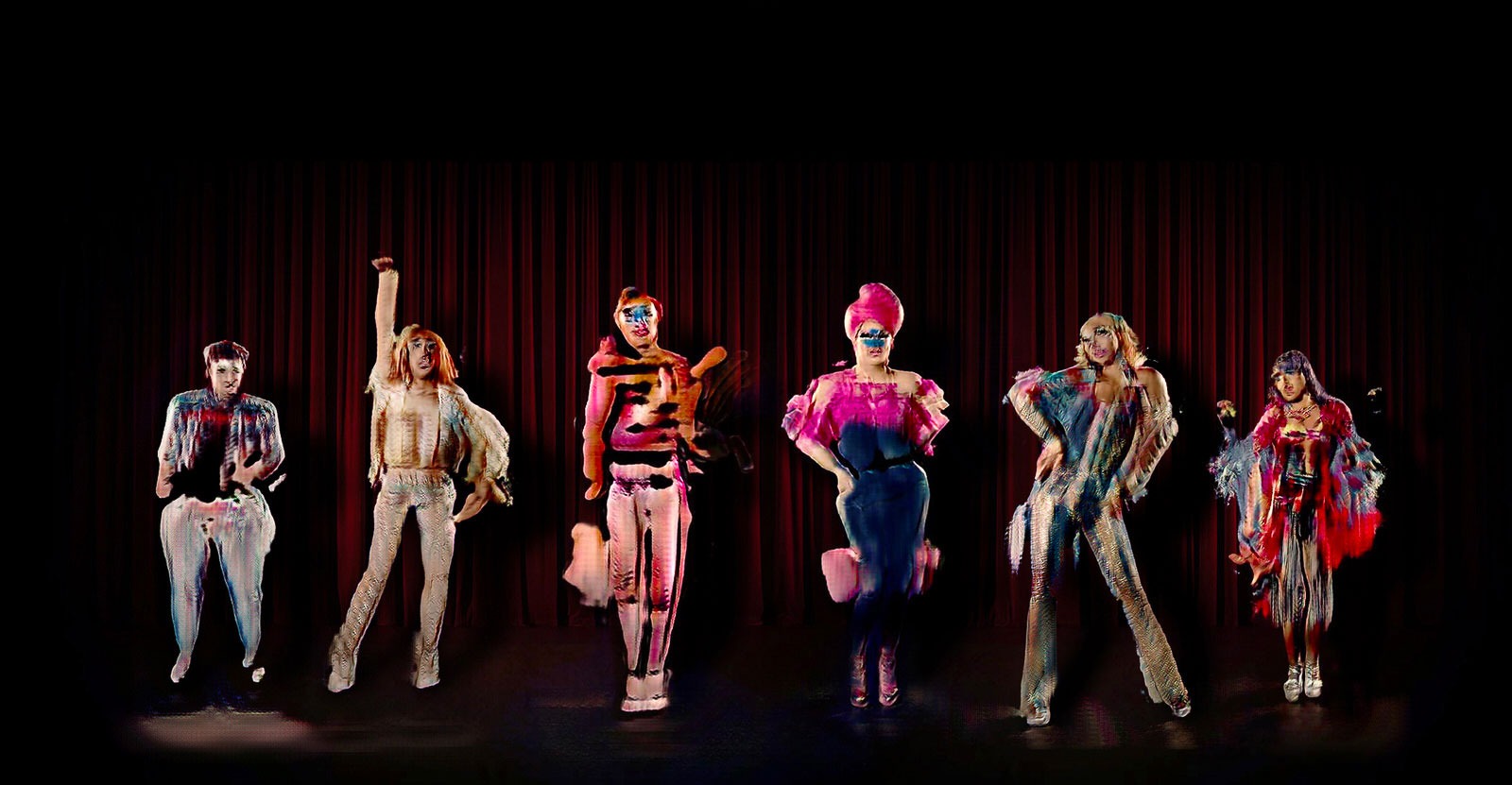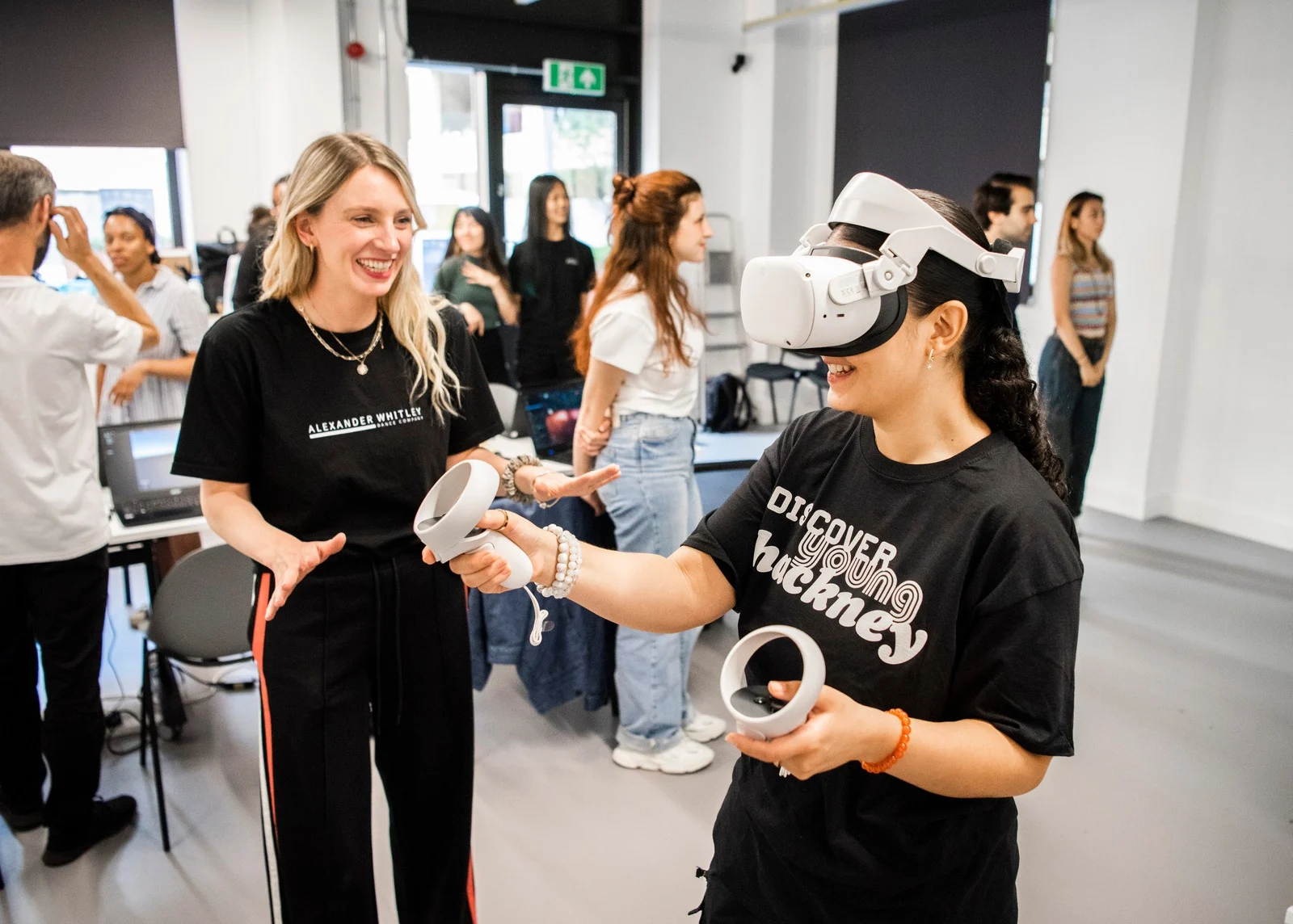Flash talks: The Politics of Capture
Sunday 17th November
11.15–12.15pm
Flash Talks
Too Many Humans: The Report
Ana Nicolaescu (Cream Projects)
Artist, Researcher, Co-founder of Cream Projects
‘Too Many Humans’ is an ongoing research project by Cream Projects. The Report will present five new case studies that investigate the workers and spaces that support contemporary infrastructures of instant fulfillment.
An Obscure Camera: Surveillance Technology and the Act of Following
Nic Sandiland
Artist & co-founder of Flexer & Sandiland
Building on art history and my current installation, ‘An Obscure Camera,’ this talk will explore the nuances of surveillance society, examining the act of following, and the ways in which technology enframes the body.
Using and Sharing Movement: Supporting the equitable transmission of dance online
Hetty Blades
Associate Professor at C-DaRE
This presentation discusses some of the findings from Moving Online: Ontology and Ownership of Internet Dance (funded by the Arts and Humanities Research Council AH/W01002X/1) and introduces guidelines we are developing to support the equitable sharing of dance online.
Digital Faciality: The Politics of the Digital Face and AI Morphing
Yazan Nasrallah
Architect, visual effects artist, and PhD researcher at Goldsmiths, University of London.
This paper examines the politics of digital facial imagery in emerging technologies such as facial capture, AI morphing, and deepfakes, focusing on how the replication of faces in virtual spaces perpetuates systems of control. Drawing on Deleuze and Guattari’s concept of “faciality,” where the face becomes a controlled sign that reduces the body’s complexity, I argue that industries prioritize the hyper-realistic replication of faces, reinforcing normative identity standards and perpetuating systems of hierarchy and domination. In industries like film, gaming, and virtual reality, facial technologies aim for seamless accuracy, replicating human expressions to enhance realism. This drive for precision mirrors the techno-scientific legacy of physiognomy, which links facial features with identity and social value. As a result, digital faces often reinforce social hierarchies and political control, normalizing particular types of bodies and expressions. However, this paper also highlights the disruptive potential of AI morphing, which is currently viewed by the AI industry as a limitation. I argue that AI morphing holds significant emancipatory potential, as it destabilizes perceptions of race, gender, and identity. By offering a way to subvert normative standards and conventional perceptions of the face, AI morphing resists the political and social control traditionally imposed on the body through facial representation. Through a theoretical analysis of AI morphing and facial manipulation technologies, this paper explores how the fluidity of morphing opens new spaces for critiquing digital faciality. By examining how AI morphing can resist the political control exerted through facial replication technologies, this paper contributes to discussions on digital character creation, the politics of capture, and the intersection of embodied knowledge and artificial intelligence. Ultimately, AI morphing, along with deepfakes, holds emancipatory potential, challenging established norms and offering new forms of perception and expression in digital spaces.








